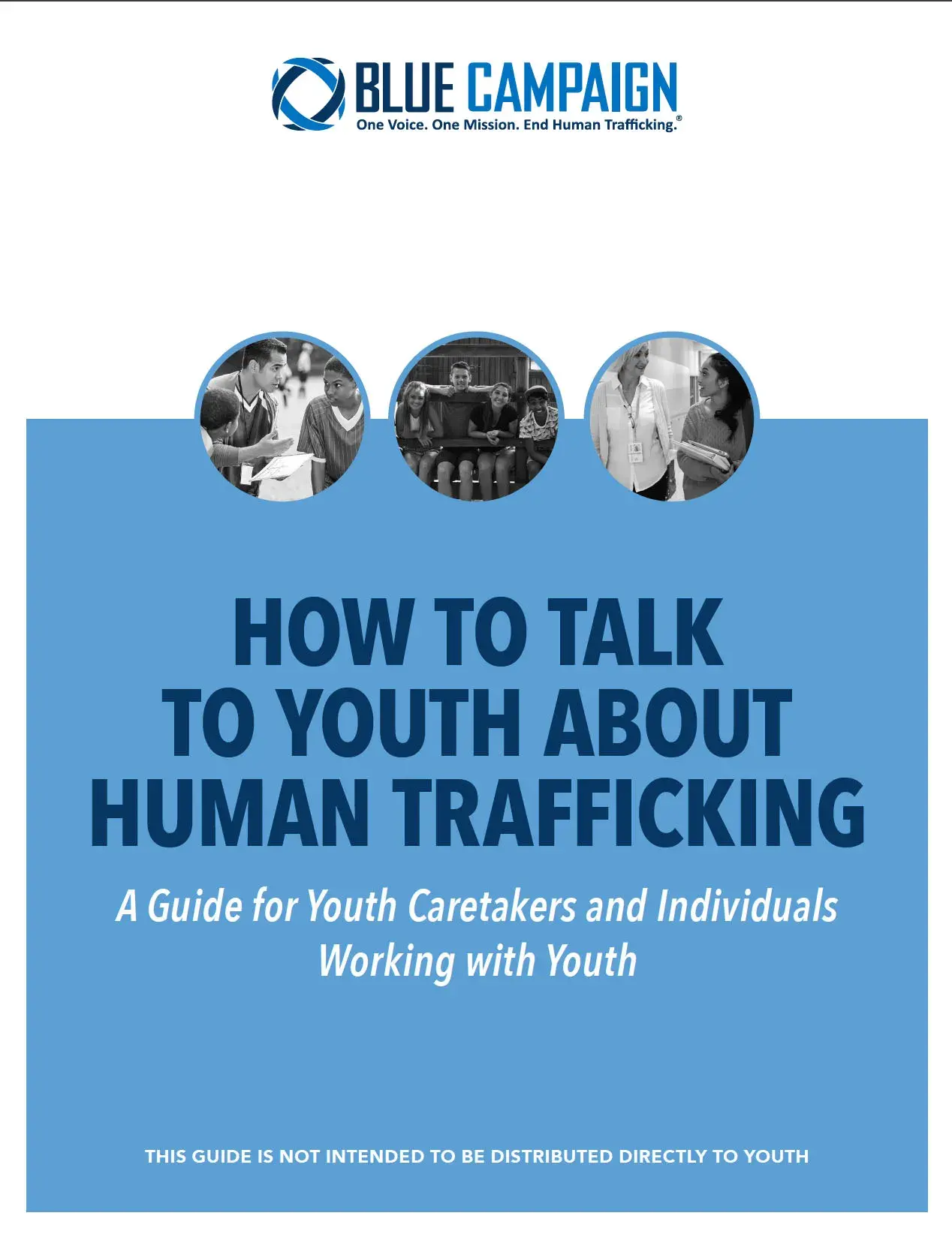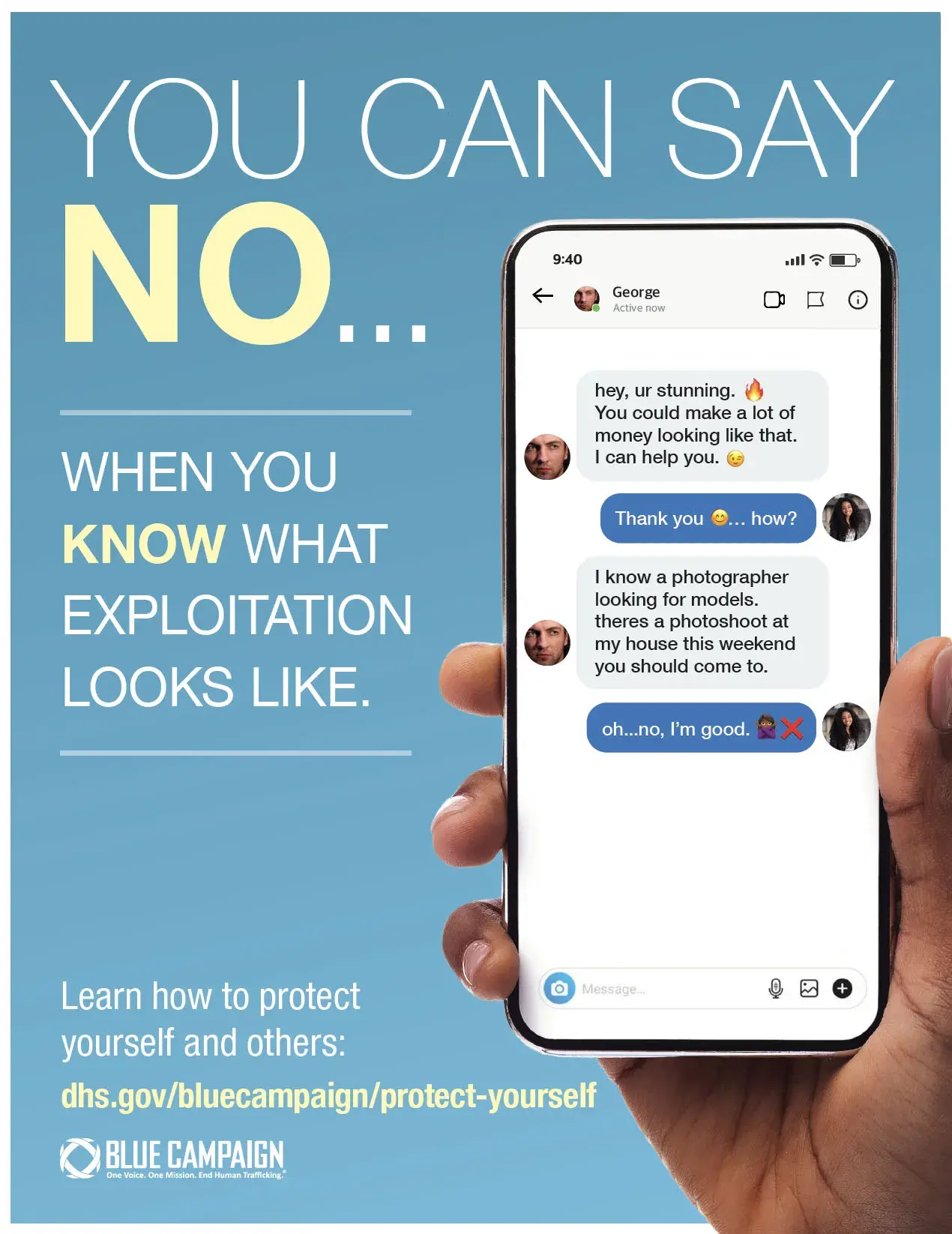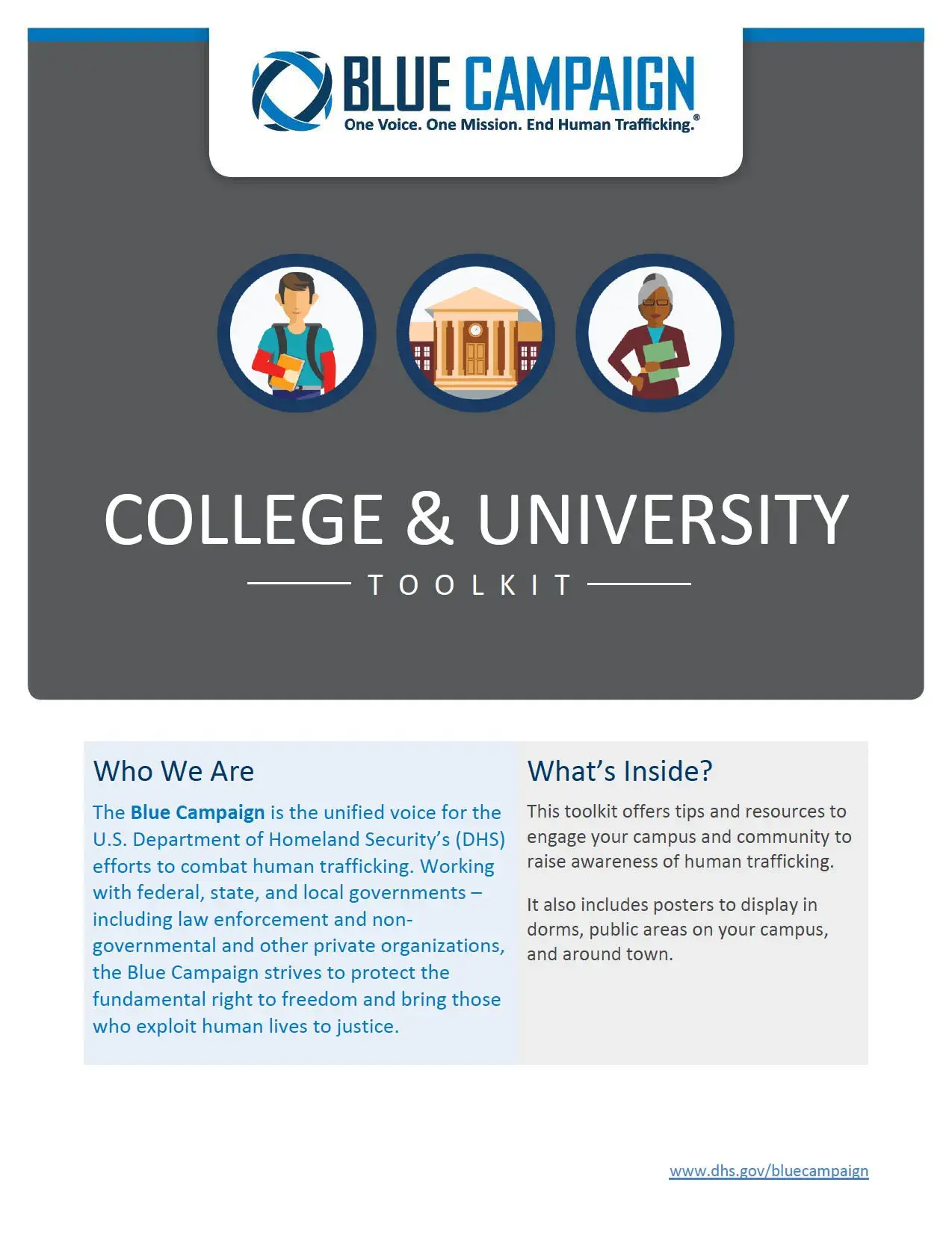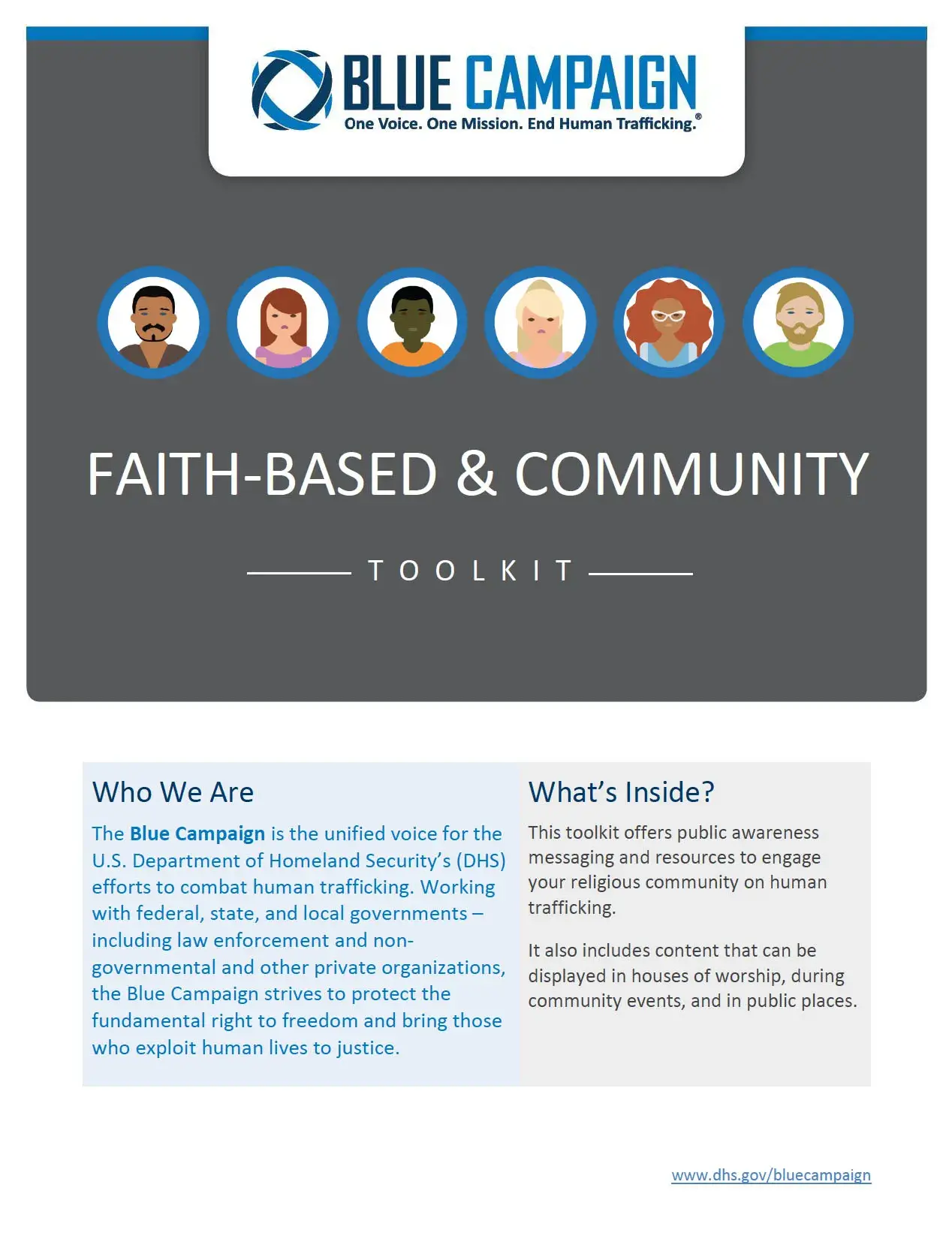Community leaders educate those around them about a variety of issues and topics, including human trafficking. They may be a trusted adult for a young person, a moral authority in a congregation, or have the ability to empower their peers to learn to recognize and report human trafficking. Regardless of their specific role, their leadership positions them to educate and influence others. Below are several resources that can be used to start conversations and raise awareness of trafficking within communities across the country.
Youth Caretakers and Professionals: How to Talk About Human Trafficking
 The How to Talk About Human Trafficking Youth Guide can be used by any adult who is a caretaker of a youth or individuals who work with youth through formal or informal programming in classrooms, camps, community or faith-based programs, sports leagues, mentorship programs, and more. The information in this guide can be incorporated into existing activities, lessons, or conversations that are used to engage youth. This guide was created with a focus on middle and high school-aged youth (11- to 17-years old). The Blue Campaign youth guide is available in English and Spanish.
The How to Talk About Human Trafficking Youth Guide can be used by any adult who is a caretaker of a youth or individuals who work with youth through formal or informal programming in classrooms, camps, community or faith-based programs, sports leagues, mentorship programs, and more. The information in this guide can be incorporated into existing activities, lessons, or conversations that are used to engage youth. This guide was created with a focus on middle and high school-aged youth (11- to 17-years old). The Blue Campaign youth guide is available in English and Spanish.
Youth Caretakers and Professionals Training
The How to Talk About Human Trafficking Guide has been adapted into a two-part video training.
Youth Awareness Posters
 The Youth Awareness Poster can be hung in spaces such as classrooms, camps, community centers, or recreational facilities to reach young people with information about how to protect themselves from exploitation. The youth awareness poster is available in English and Spanish.
The Youth Awareness Poster can be hung in spaces such as classrooms, camps, community centers, or recreational facilities to reach young people with information about how to protect themselves from exploitation. The youth awareness poster is available in English and Spanish.
Higher Education Student Advocate Toolkit
 The Student Advocate Toolkit offers tips and resources to engage campuses and communities to raise awareness of human trafficking. It also includes posters to display in dorms, public areas on campus, and around town. Student leaders can help stop human trafficking by educating and engaging the people on their campus and in their community.
The Student Advocate Toolkit offers tips and resources to engage campuses and communities to raise awareness of human trafficking. It also includes posters to display in dorms, public areas on campus, and around town. Student leaders can help stop human trafficking by educating and engaging the people on their campus and in their community.
Human Trafficking on College Campuses
This video is for anyone attending or working in a university to learn to recognize and appropriately respond to suspected human trafficking in a campus environment. (DHS Video by Blue Campaign)
Faith-Based & Community Toolkit
 The Faith-Based and Community Toolkit offers public awareness messaging and resources to engage religious communities on human trafficking. It also includes content that can be displayed in houses of worship, during community events, and in public places. As a moral authority and trusted messenger, the efforts of faith leaders to educate and engage their congregation and community will resonate. This toolkit is also available in English and Spanish.
The Faith-Based and Community Toolkit offers public awareness messaging and resources to engage religious communities on human trafficking. It also includes content that can be displayed in houses of worship, during community events, and in public places. As a moral authority and trusted messenger, the efforts of faith leaders to educate and engage their congregation and community will resonate. This toolkit is also available in English and Spanish.


